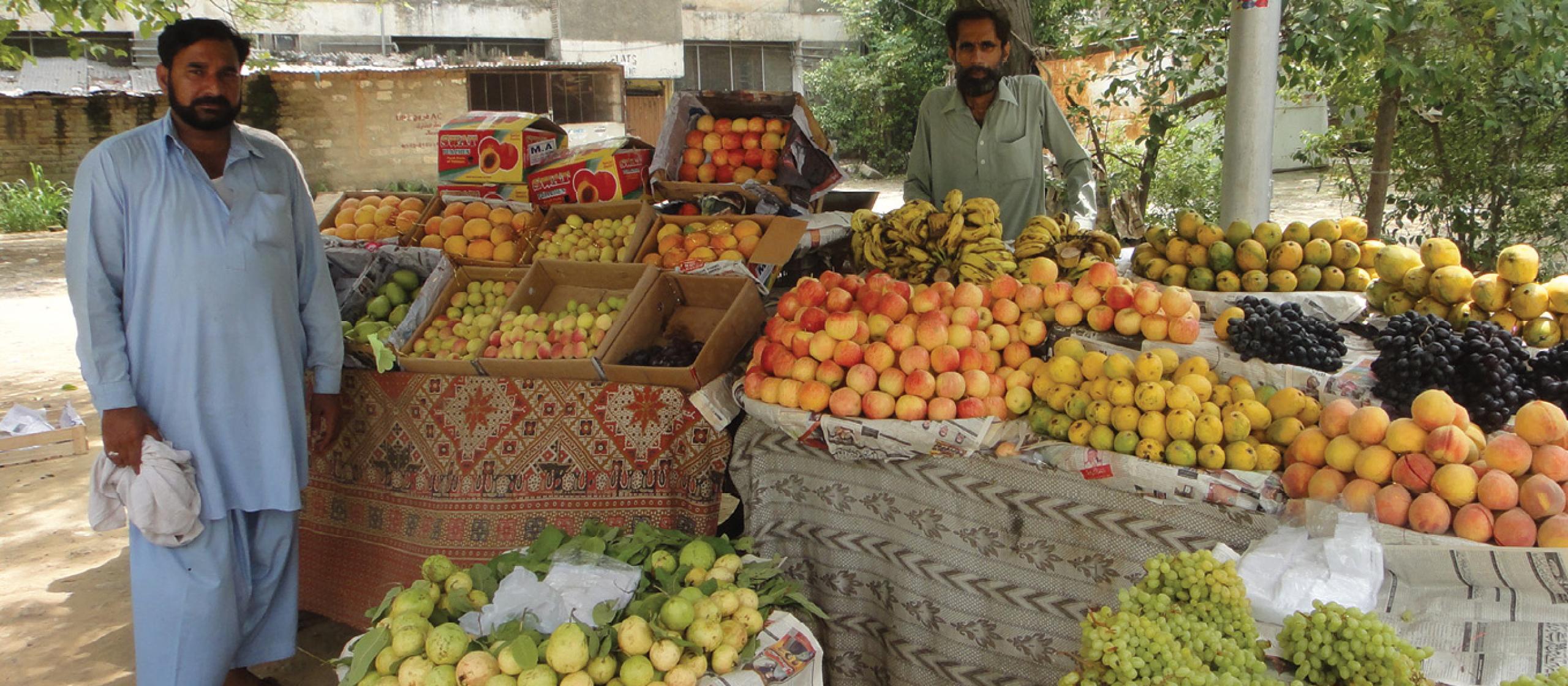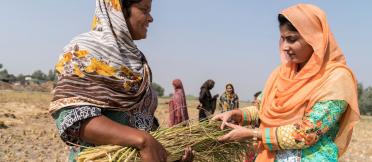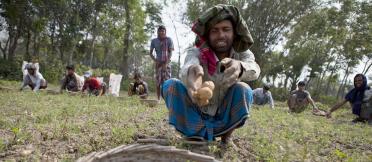- HomeHome
-
About ACIAR
- Our work
- Our people
-
Corporate information
- ACIAR Audit Committee
- Commission for International Agricultural Research
- Policy Advisory Council
- Agency reviews
- Executive remuneration disclosure
- Freedom of information (FOI)
- Gifts and benefits register
- Information publication scheme
- List of new agency files
- Contracts
- Legal services expenditure
- Privacy impact assessment register
- Commonwealth Child Safe Framework
- Benefits to Australia
- Careers
- 40 years of ACIAR
-
What we do
- Programs
- Cross-cutting areas
- Resources
- Where we work
-
Funding
- Research projects
- Fellowships
-
Scholarships
- John Allwright FellowshipScholarships to study in Australia for ACIAR partner country scientists to have Australian postgraduate qualifications
- ACIAR Pacific Agriculture Scholarships and Support and Climate Resilience Program
- Alumni Research Support Facility
- Publications
- News and Outreach
Date released
02 July 2021
An ACIAR-funded project to assist the modernisation of Pakistan’s horticultural sector has resulted in legislative change in the country’s breadbasket state of Punjab and drawn support from the office of Pakistani Prime Minister Imran Khan, raising hopes that this could be replicated throughout the rest of the country.
In March 2020, the Punjab Agricultural Marketing Regulatory Authority Act 2018 was amended to include some of the project’s key recommendations, including reducing the monopolistic hold of traders in Pakistan’s horticultural industry, enabling entry of more progressive-minded firms into the market, modernising value chains through increased investment in technology and innovation, and prioritising smallholder farmers in any modernisation efforts.
‘I think we couldn’t expect more—in fact, it’s very, very rare for a research project to achieve policy legislative changes even before the final project report is done,’ says Professor Sisira Jayasuriya, an economics professor at Monash Business School and co-leader of the project.
Securing policy change
In Pakistan agriculture is regulated at the state level so any policy changes need to come from state governments, but Professor Jayasuriya says that having federal support ‘tends to push the process along’ for other states to adopt legislative changes. The federal government hasn’t been shy in showing its support for the project. When Punjab was in the middle of its legislative processes back in July 2019, the Prime Minister’s Office unveiled a national agricultural ‘emergency’ program featuring a PKR 23.6 billion (A$223 million) scheme to transform Punjab’s agricultural produce markets. That included the creation of four new markets and revamping infrastructure in 54 existing markets.
The federal government has also incorporated some of the researchers’ findings into the country’s national export development strategy. That includes the importance of investment in strict quality control and health and safety protocols, among other improvements, which could help Pakistan to tap into its hugely under-exploited export growth potential. While the South Asian country has one of the world’s biggest horticultural industries, producing roughly 13.7 million tonnes of fruits and vegetables annually, very little of the crop is exported.
‘This project—unlike many other projects that make long lists of impractical, obvious and generic recommendations—made some clear, concrete, practical policy recommendations that could be actually implemented by changing legislation, reforming institutions. Sometimes it was as simple as changing our growing habits to different varieties,’ says Mr Moeen Abbas, a Senior Associate in Economic Affairs at the Pakistani Prime Minister’s Office.
Key to the project’s success has been fostering relationships with all relevant stakeholders, from government officials to industry and academia, says project co-leader, Professor Jeffrey LaFrance, another economics professor at Monash Business School.
‘You need to pay close attention to everyone involved in the market you’re looking at as well as their cultural background and institutional ranks, because if you don’t respect those, you can’t make any progress whatsoever—they’ll just ignore you,’ Professor LaFrance says.
To illustrate his point, he cites the key leadership role played by Mr Arif Nadeem and the Pakistan Agricultural Coalition (an industry body that was a project partner), as well as the involvement of leading Pakistani universities and scientific research institutions.
ACIAR also credits Pakistan authorities for supporting and advancing the work.
Applying policy on-ground
ACIAR has a long history of research in Pakistan’s citrus sector. From 2005 to 2016, ACIAR in collaboration with Australia’s Department of Foreign Affairs and Trade focused on improving productivity and quality in Pakistan’s citrus industry and also recognised the need for improved value chain efficiencies. That led to the launch of a four-year ACIAR-funded project in 2016 focused on the marketing of mangoes, tomatoes and chillies in two of Pakistan’s largest and most horticulturally important provinces, Punjab and Sindh.
The researchers have found that total domestic demand for all three crops is projected to increase due to population growth and rising incomes. Also, consumers are willing to pay more for higher quality. However, growth is being hampered by the regulatory settings of Pakistan’s agricultural marketing institutions, which haven’t been updated since the British Colonial period.
In Punjab and Sindh, much like in other Pakistani states, the horticulture market is dominated by a handful of licensed traders and dealers who profit handsomely off the status quo so have little incentive to modernise. With minimal market competition in place, Pakistan’s overwhelming number of smallholder farmers are forced to not only sell their produce at low prices but also depend on these dealers and traders for much-needed small business loans, thereby reinforcing the cycle of dependence.
Gender at the fore
Rural women are also being vastly undervalued and left out of the horticulture market, despite being a key player in agricultural production. ‘This is a big cultural challenge, not so much a uniquely religious challenge, because other Muslim countries like Indonesia, Malaysia and even Bangladesh don’t have this issue,’ says Professor Jayasuriya. In Pakistan, women working outside the home in mixed-gender settings is simply considered ‘not the right thing’, he adds. But, the exclusion of most women from Pakistan’s formal sector labour force presents a big problem for the modernisation of the country’s horticulture industry. ‘If you want to have large-scale horticultural processing, you need a labour force—and in most countries women contribute a lot of that labour,’ Professor Jayasuriya says.
Research by Pakistani project team member Dr Aneela Afzal has found that if the markets can be reformed and start to allow some of the more progressive firms to enter, the prospect of higher profits will naturally lead them to invest in processing facilities, which in turn will generate demand for labour in rural areas. This increased need for labour combined with the untapped female labour force could lead to innovative ways to bypass gender norms.
That’s how Nestlé, the multinational food and beverage firm, overcame gender bias in Pakistan’s dairy sector.
‘We can’t prescribe a specific approach to getting women to come to work, but once the firms have sufficient incentives they will find ways to get around some of these things and over time that will create a dynamic of its own that will facilitate women to acquire more skills, to play a bigger role in these markets and to become more empowered,’ says Dr Afzal.
Overcoming hurdles
While the project has achieved impressive outcomes, security issues made it difficult for the Australians to travel to Pakistan and to participate in field work. The team overcame this with visits and workshops in both Pakistan and Australia as well as regular ‘virtual’ meetings that enabled the team members to interact with each other and establish relationships with key Pakistani stakeholders.
COVID-19 has presented another hurdle. The researchers had planned to hold a roadshow to present their project findings to other Pakistani states that might be interested in modernising their horticultural industries but that has been put on hold as Pakistan struggles to contain the deadly virus. However, Professors Jayasuriya and LaFrance say their research will be even more relevant in the future. ‘For a country like Pakistan, improving exports utilising the potential of the agricultural sectors, including horticulture, will become really important [post COVID] because they will be now faced with all the issues they’ve been postponing, but in a more acute form,’ Professor Jayasuriya says.
ACIAR project: Policy and Institutional Reforms to Improve Horticultural Markets in Pakistan, ADP/2014/043
Key points
- ACIAR-supported projects focused on policy are contributing to the modernisation of Pakistan’s horticultural sector.
- Pakistan’s federal government has incorporated research recommendations into the country’s national export development strategy, with the state of Punjab leading the way in policy changes.
- These policy changes underpin the market development of mangoes, tomatoes and chillies.






